It’s cold outside — record-breaking temps are hitting cities from Illinois to Texas. Arctic blasts can severely disrupt day-to-day routines, and more importantly quality of life, quickly putting millions of lives in danger. How prepared are your residents? The Nextdoor for Public Agencies Team is here to help generate content and ideas to best serve your community. We know you’re busy, so find suggested ways to engage with residents below.
Stay safe — and warm!
- Poll: How should you plug in your space heater?
- Message: How to correctly use a space heater
- Message: Do not use a stovetop or oven to heat your home
- Message: Encourage neighborliness during snowstorms
- Message: The signs of Hyperthermia
Poll: How should you plug in your space heater?
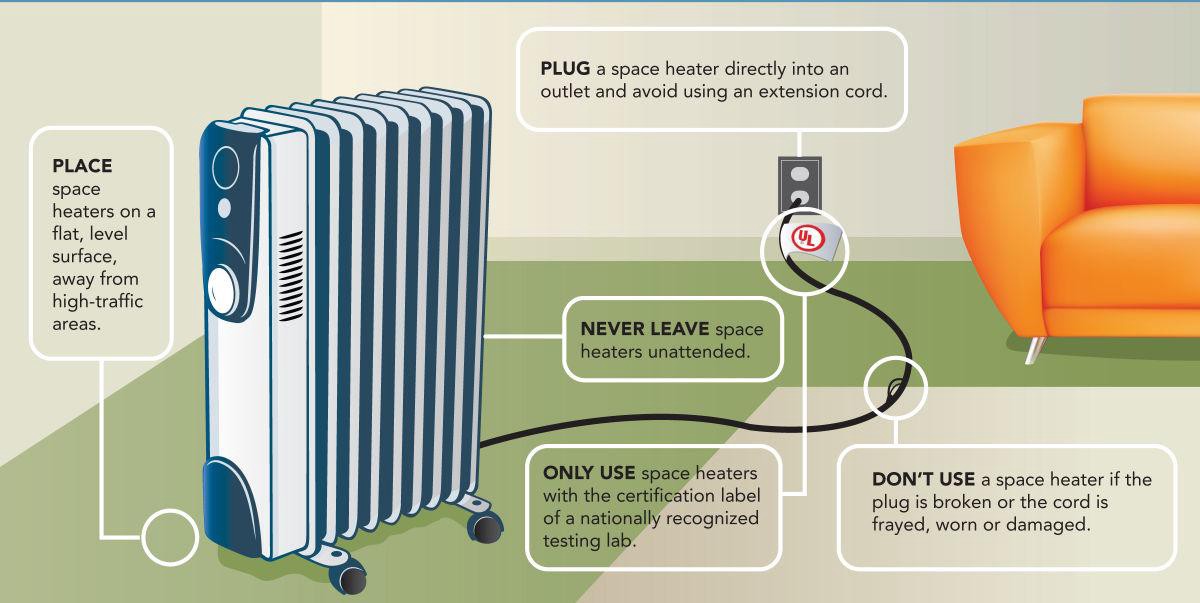
For “Ask a question”: What is your space heater plugged into?
For “Add a poll description”:
Neighbors,
According to the National Fire Protection Association, while only 32 percent of home heating fires involve space heaters, space heaters are involved in 79 percent of home heating fire deaths.
Please pick the option that best describes how your space heater is currently plugged in and please share any experience you or someone you know has had with space heaters and fires.
For “Add a choice”:
- The space heater is plugged into an extension cord that is plugged into a wall outlet
- The space heater is plugged into an extension cord that is plugged into a power strip that is plugged into the wall outlet
- The space heater is plugged into a power strip that is plugged into the wall outlet
- The space heater is plugged directly into the wall outlet
Message: How to correctly use a space heater
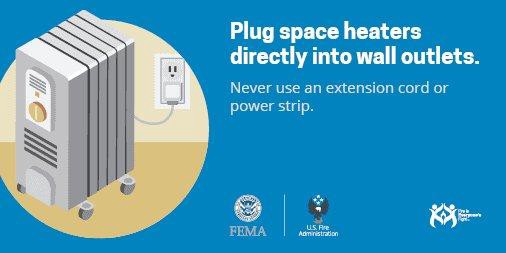
Thank you to over [X number] of you who participated in the poll. Yes, most of you are correct, that a space heater should be plugged directly into a wall.
Heating equipment continues to be the second leading cause of home fires behind cooking and the second leading cause of home fire deaths behind smoking.
As temperatures drop, if you are using a space heater to warm up, please be sure to plug all space heaters directly into a wall outlet and always turn it off when leaving the room or going to bed.
You will also want to establish a 3-foot kid and pet-free zone around the heater, and never put a space heater in a child’s room. Finally, keep your space heaters at least 3 feet away from combustible materials like furniture, bedding, and curtains.
Here is more information on winter heating and space heaters. https://www.nfpa.org/public-education/by-topic/top-causes-of-fire/heating
If you have questions or suggestions, leave them below in the comments.
Message: Do not use a stovetop or oven to heat your home
Subject: No, it is not ok to use an oven or stovetop to heat your home!
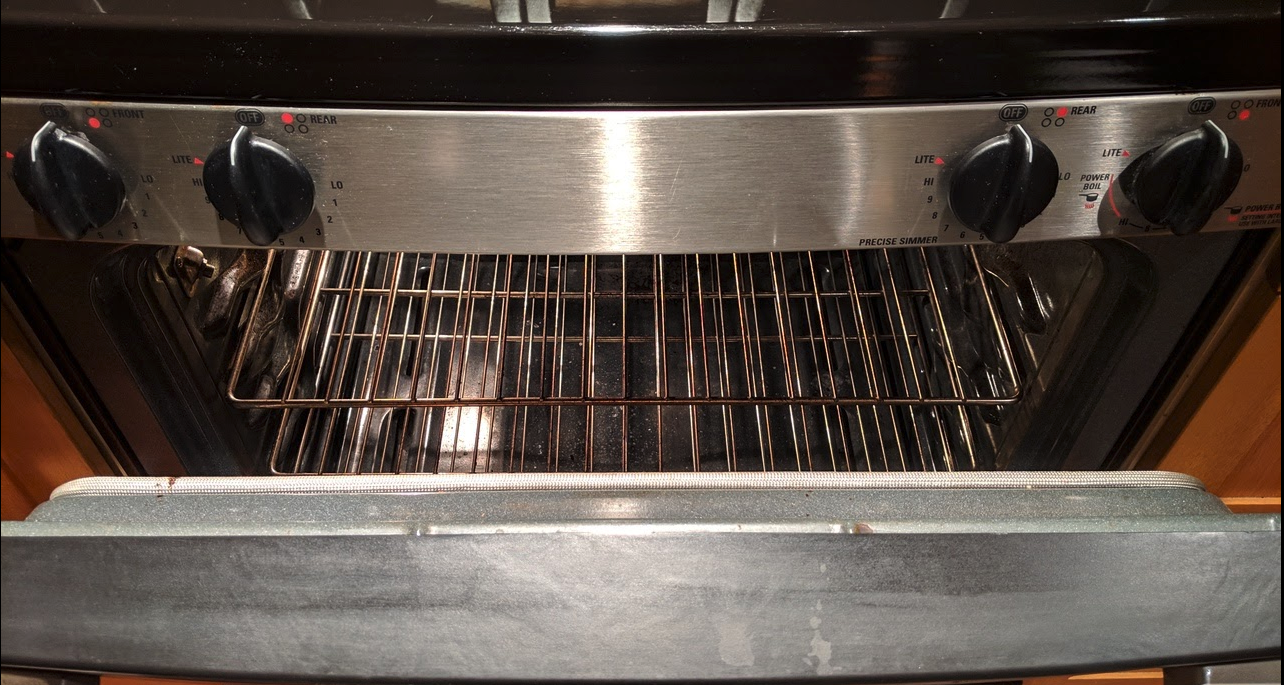
Neighbors,
Now that the temperatures have dropped, we wanted to remind you that ovens and stovetops were never designed for heating homes only and doing so can lead to Carbon Monoxide poisoning.
Carbon Monoxide (CO) is an invisible, odorless gas that is emitted anytime combustion appliances (such as gas ovens and stoves) are used. If a gas oven or stovetop is misused, dangerous levels of CO occur.
Signs of carbon monoxide poisoning include a dull headache, weakness, dizziness, nausea or vomiting, shortness of breath, confusion, blurred vision, and loss of consciousness. If you develop these symptoms immediate leave your home and then call 911.
Never use a gas oven to heat your home and have them inspected annually by a professional. Also, be sure to keep anything flammable such as paper towels, drying clothes, food packaging or anything that could catch fire at least 3 feet away from the stove and oven.
It is also important to ensure your home has both smoke and carbon monoxide detectors, for more information visit — https://www.usfa.fema.gov/prevention/technology/.
If you have any questions or suggestions, feel free to comment.
Message: Encourage neighborliness during snowstorms
SUBJECT: Be a good neighbor and lend a hand to those not able to shovel
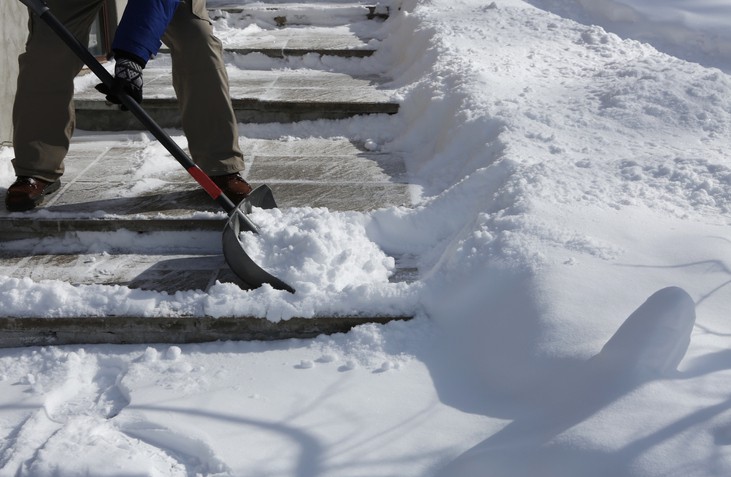
Dear Neighbors,
While snowstorms are exciting for many of us, for neighbors who are older, injured, or have a disability, snowstorms can cause a great deal of anxiety and pose a threat to their well-being.
If you are willing to help shovel out a neighbor in need, consider adding a discussion to your Nextdoor neighborhood letting your neighbors know you are willing to help. Perhaps you can even organize groups of neighbors to shovel together!
In addition to helping those in need, please consider shoveling the following:
1) Occupied and empty handicap parking spots
2) Bus stops
3) Curb cuts
4) Fire hydrants
5) Storm drains
When shoveling sidewalks and curb cuts, please shovel the width of at least 36 inches to allow people who use wheelchairs to pass safely.
Stay warm and thank you for looking out for your neighbors. If you have any other ideas on how you and your neighbors can be helpful, let us know below.
Message: The signs of Hyperthermia
Subject: Do you know the signs of Hyperthermia?
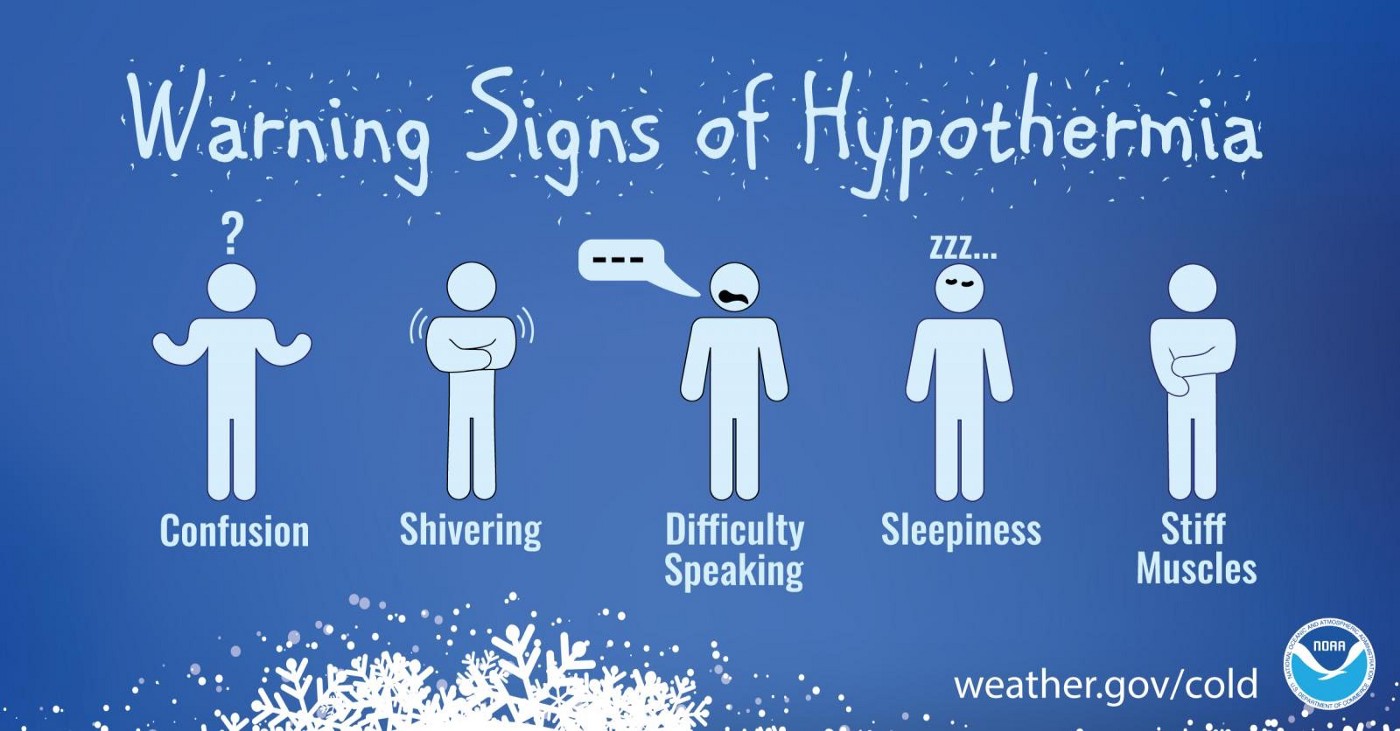
Hi Neighbors,
According to the Mayo Clinic, hypothermia is a medical emergency that occurs when your body loses heat faster than it can produce heat, causing a dangerously low body temperature. Normal body temperature is around 98.6 F (37 C). Hypothermia (hi-poe-THUR-me-uh) occurs as your body temperature falls below 95 F (35 C).
When your body temperature drops, your heart, nervous system and other organs can’t work normally. Left untreated, hypothermia can eventually lead to complete failure of your heart and respiratory system and eventually to death.
Hypothermia is often caused by exposure to cold weather or immersion in cold water. Primary treatments for hypothermia are methods to warm the body back to a normal temperature.
Shivering is likely the first thing you’ll notice as the temperature starts to drop because it’s your body’s automatic defense against cold temperature — an attempt to warm itself.
Signs and symptoms of hypothermia include:
- Shivering
- Slurred speech or mumbling
- Slow, shallow breathing
- Weak pulse
- Clumsiness or lack of coordination
- Drowsiness or very low energy
- Confusion or memory loss
- Loss of consciousness
- Bright red, cold skin (in infants)
Someone with hypothermia usually isn’t aware of his or her condition because the symptoms often begin gradually. Also, the confused thinking associated with hypothermia prevents self-awareness and confused thinking can also lead to risk-taking behavior.
Call 911 or your local emergency number if you suspect someone has hypothermia.
While you wait for emergency help to arrive, gently move the person inside if possible. Jarring movements can trigger dangerous irregular heartbeats. Carefully remove his or her wet clothing, replacing it with warm, dry coats or blankets.
If you’ve experienced hypothermia, know someone who has, or you have other tips to share, please comment below.

